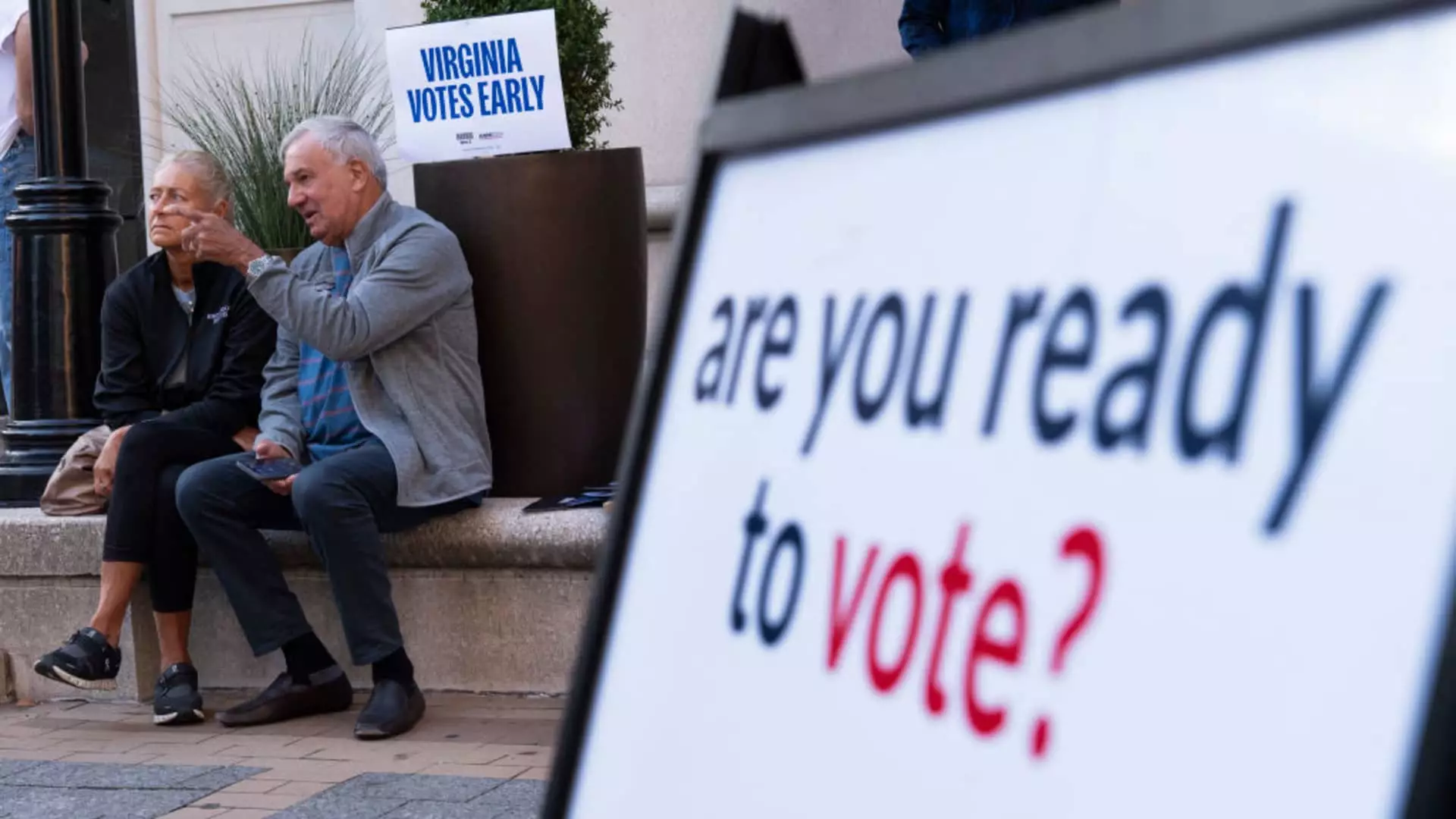The United States is approaching a significant election this November, and with it comes an array of concerns and considerations that weigh heavily on Americans’ minds. While the excitement surrounding potential candidates and their platforms often takes center stage, it’s critical to recognize how the political landscape affects everyday financial decisions. The tendency for voters to delay purchasing plans—from new vehicles to home renovations—during elections can lead to missed opportunities and unnecessary stress. This article delves into the consequences of waiting on financial decisions and highlights strategies for effective planning, regardless of electoral results.
According to a survey by the Certified Financial Planner (CFP) Board, a significant majority of Americans, around 63%, are postponing vital financial decisions until after the election results are in. This reaction is largely fueled by uncertainty surrounding which candidate will emerge victorious and how that victory may impact economic policies. However, relying on political outcomes as the basis for financial planning can create a detrimental cycle of indecision. Financial experts are increasingly cautioning against this approach, asserting that a more proactive stance is necessary to achieve individual financial goals.
The turbulence and unpredictability that often accompany election seasons can lead to a paralysis of sorts. Individuals may find themselves pondering questions such as, “What if Candidate A wins?” or “How might Candidate B’s policies reshape my financial landscape?” Surprisingly, these hypothetical musings rarely translate into concrete financial outcomes. Experts argue that the risk is often overestimated, as most significant policy changes take substantial time to implement and require cross-party agreement in Congress.
Michael Liersch, head of advice and planning at Wells Fargo, encourages individuals to step back and evaluate their financial plans against their long-term aspirations, rather than allowing external political factors to dictate their choices. He suggests asking critical questions such as, “Would my financial strategy fundamentally change based on the election outcome?” This reflection can reveal that many financial decisions—especially large investments—are rarely contingent on who is elected to office.
Financial planners like Liz Miller emphasize the importance of returning to one’s financial plan during times of uncertainty. By doing so, clients often realize that deferring actions—such as purchasing a new car or remodeling their home—might not be warranted. Miller recommends that individuals construct potential scenarios—best-case, worst-case, and those in between—to assess the implications of their financial decisions meaningfully.
The Long-Term View: Addressing Immediate Concerns
One key issue plaguing many voters’ minds coincides with the impending depletion of the Social Security trust fund, an issue that looms large for the 81% of survey respondents who list it as a primary concern. Without legislative action from Congress, projections indicate that by 2033, only 79% of promised benefits will be paid to retirees. For individuals worried about their retirement financing, experts recommend proactive steps such as obtaining estimates of future Social Security benefits and exploring options to enhance personal savings.
Additionally, savvy financial practices—like systematically reducing debt, diversifying investments, and enhancing emergency funds—are strategies that provide financial stability irrespective of the political climate or potential benefits reductions. Stacy Francis, a CFP and president of Francis Financial, highlights the importance of staying grounded and focusing on actionable steps that can secure one’s financial future.
Investors are particularly anxious during an election year, often tied up in uncertainties related to potential tax changes and capital gain taxation. However, as many analysts are pointing out, the current strengths of the stock market may provide an ideal opportunity for capital gains assessments. Instead of waiting for post-election clarity, investors should evaluate their options and consider proactive maneuvers now, as capital gains tax rates remain stable until legislative changes take place.
Miller advocates for the idea of taking advantage of current gains while keeping an eye on upcoming tax policies. By making deliberate and informed choices today, investors may set themselves up for greater benefits while navigating the turbulent waters of political outcomes.
Ultimately, using elections as a reason to defer financial decisions can lead to needless anxiety and missed opportunities. It is essential for individuals to remain committed to their financial plans and focus on their long-term goals, irrespective of external pressures. Addressing financial choices head-on—with a clear understanding of personal circumstances—will yield better stability and potentially greater success, allowing individuals to weather election-year uncertainties with confidence and foresight.

Leave a Reply